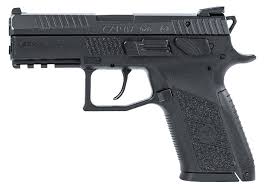 Unlawful Carrying Weapon and DWI sometimes go hand-in-hand. Mimi is used to seeing UCW charges added onto DWIs. She is also familiar with fighting agains Unlawful Possession of a Firearm charges. Mimi is well-known as one of the most knowledgeable criminal lawyers on the subject of DWI. This is because she is board-certified in DWI by the NCDD. If you are looking for a “criminal lawyer near me”, know that she handles most all of North Texas.
Unlawful Carrying Weapon and DWI sometimes go hand-in-hand. Mimi is used to seeing UCW charges added onto DWIs. She is also familiar with fighting agains Unlawful Possession of a Firearm charges. Mimi is well-known as one of the most knowledgeable criminal lawyers on the subject of DWI. This is because she is board-certified in DWI by the NCDD. If you are looking for a “criminal lawyer near me”, know that she handles most all of North Texas.
What is Unlawful Possession of a Firearm?
Unlawful Possession of Firearms occurs when a person possesses a firearm a certain amount of time after a criminal conviction.
Texas Penal Code § 46.04 defines the offense of Unlawful Possession of a Firearm:
(a) A person who has been convicted of a felony commits an offense if he possesses a firearm:
- after conviction and before the fifth anniversary of the person’s release from confinement following conviction of the felony or the person’s release from supervision under community supervision, parole, or mandatory supervision, whichever date is later; or
- after the period described by Subdivision (1), at any location other than the premises at which the person lives.
(b) A person who has been convicted of an offense under Section 22.01, punishable as a Class A misdemeanor and involving a member of the person’s family or household, commits an offense if the person possesses a firearm before the fifth anniversary of the later of:
- the date of the person’s release from confinement following conviction of the misdemeanor; or
- the date of the person’s release from community supervision following conviction of the misdemeanor.
My job requires me to travel to high-crime areas. When am I allowed to have a gun?
As subsection (a) says above about Unlawful Possession of a Firearm, the normal time period is 5 years after release from confinement, probation, or parole. It also says whichever date is later. This means that you may need to wait extra time if, for example, you have parole after release from confinement. Section (2) does provide a bit of a safe zone, however. That section issues a penalty if one possesses the gun outside of their home, meaning you may still be able to keep a gun in their home for protection. Unfortunately, this means you likely risk punishment by owning a gun even for personal security outside your home. Contact us to make sure you are not at risk of Unlawful Possession.
What is the penalty for an Unlawful Possession of a Firearm charge?
Texas Penal Code § 46.04(e) establishes the base penalty for Unlawful Possession of a Firearm:
An offense under subsection (a) is a third (3rd) degree felony. An offense under subsection (b) is a Class A misdemeanor.
In other words, if your misdemeanor involved a family member, then the possession will also be a class A misdemeanor.
A felony (regardless of family violence) means the unlawful possession charge will also be a felony.
If you own a handgun, you might also have a UCW charge depending on the circumstances of your arrest. Normally, a UCW occurs when a person carries a handgun outside of their home or car. However, a weapon in plain view while in their car is a UCW. One common UCW scenario is when you may not possess a handgun by law (such as Unlawful Possession). Another common circumstance occurs when you possess the handgun while “engaged in criminal activity”. It is important to note that possession, not use, is the test. In other words, police may charge you with UCW if they find a handgun in your car after a DWI (unless the search is illegal, which is a separate issue).
Texas Penal Code § 46.02 defines the offense of UCW:
(a) A person commits an offense if the person:
- intentionally, knowingly, or recklessly carries on or about his or her person a handgun; and
- is not:
- on the person’s own premises or premises under the person’s control; or
- inside of or directly en route to a motor vehicle or watercraft that is owned by the person or under the person’s control
(a-1) A person commits an offense if the person intentionally, knowingly, or recklessly carries on or about his or her person a handgun in a motor vehicle or watercraft that is owned by the person or under the person’s control at any time in which:
- the handgun is in plain view, unless the person is licensed to carry a handgun under Subchapter H, Chapter 411, Government Code, and the handgun is carried in a shoulder or belt holster; or
- the person is:
- engaged in criminal activity, other than a Class C misdemeanor that is a violation of a law or ordinance regulating traffic or boating;
- prohibited by law from possessing a firearm; or
- a member of a criminal street gang, as defined by Section 71.01
What is the penalty for a UCW arrest?
In general, a UCW charge is a Class A misdemeanor. The law raises UCW to a third (3rd) degree felony if committed on any premises licensed or issued a permit to sell alcohol (even if the defendant owns the premises).
Texas Penal Code § 46.02(b) and (c):
(b) Except as provided by Subsection (c) or (d), an offense under this section is a Class A misdemeanor.
(c) An offense under this section is a felony of the third degree if the offense is committed on any premises licensed or issued a permit by this state for the sale of alcoholic beverages.
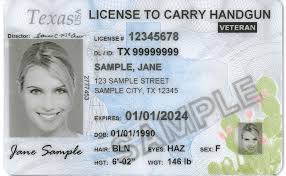 What is the status of my License to Carry (LTC) after my Unlawful Possession of a Firearm?
What is the status of my License to Carry (LTC) after my Unlawful Possession of a Firearm?
Whenever you face Class A or B misdemeanor charge or felony charge, Texas DPS will suspend your License to Carry a handgun. That suspension lasts until dismissal of the charges.
Texas Government Code § 411.187(a)(1) and (c)(3):
(a) The department shall suspend a license under this section if the license holder:
- is charged with the commission of a Class A or Class B misdemeanor or equivalent offense . . . or of a felony under an information or indictment . . .
(c) The department shall suspend a license under this section:
. . .(3) until dismissal of the charges, if the person’s license is subject to suspension for the reason listed in Subsection (a)(1) . . .
What is the difference between a suspension and a revocation?
The key point to remember is that a suspension is different than a revocation. For example, if the court dismisses a misdemeanor or felony charge, you can get your license back immediately. However, a criminal conviction means that you are ineligible to re-apply for a LTC for a specific time period.
Texas Government Code § 411.186 (a)(3):
(a) the department shall revoke a license under this section if the license holder:
. . . (3) subsequently becomes ineligible for a license under Section 411.172, unless the sole basis for the ineligibility [is a pending charge that is grounds for suspension under Section 411.187].
When can DPS revoke my LTC after Unlawful Possession of a Firearm?
As mentioned above, DPS will suspend your LTC if you “subsequently become ineligible” to hold the license.
Texas Government Code § 411.172 defines eligibility to possess an LTC:
(a) a person is eligible for a license to carry a handgun if the person:
. . .(4) is not charged with the commission of a Class A or Class B misdemeanor . . . or of a felony under an information or indictment; [meaning you cannot apply if you do not already possess an LTC, but is grounds for suspension for current holders].
. . . (6) is not a chemically dependent person;
. . . (8) has not, in the five years preceding the date of application, been convicted of a Class A or Class B misdemeanor or equivalent offense . . .;
What is a “chemically dependent person”?
Texas Government Code § 411.171(2) defines a “chemically dependent person”:
(2) “Chemically dependent person” means a person who frequently or repeatedly becomes intoxicated by excessive indulgence in alcohol or uses controlled substances or dangerous drugs so as to acquire a fixed habit and an involuntary tendency to become intoxicated or use those substances as often as the opportunity is presented.
Texas Government Code § 411.172(c) defines how to determine a “chemically dependent person”:
(c) An individual who has been convicted two times within the 10-year period preceding the date on which the person applies for a license of a . . . Class B misdemeanor or greater that involves the use of alcohol or a controlled substance as a statutory element . . . is a chemically dependent person . . .
When will I be eligible to re-apply for my LTC?
After a license revocation, you may re-apply for an LTC 2 years AFTER the revocation if the cause of the revocation does not exist on the date of the second anniversary. If the cause of revocation still exists at that time, you may only reapply 2 years AFTER the revocation stops existing. Texas Government Code § 411.186(c).
In other words, because you are ineligible to hold a license if you have a misdemeanor conviction within the 5 years before application, you would be ineligible to reapply for 7 years after a misdemeanor conviction. Contact us if you are unsure about your LTC status.
I have a felony conviction. When can I have a license to carry (LTC)?
Texas Government Code § 411.172(3)
. . .(3) has not been convicted of a felony.
Because you must wait 2 years after the cause for the revocation ceases to exist, you are absolutely ineligible to apply for an LTC if you have a SINGLE felony conviction on your record. This is because, unlike with misdemeanors, there is no “5 year” limit. A felony is an absolute bar to applying for an LTC. This is a bit of an oddity because, as seen above, the unlawful possession statute still allows a felon to own a gun after a certain time period. In other words, a felon might be able to own a gun, but not to apply for an LTC.
Can I get my gun back after police take it?
That is a very complication question and the subject of our other post regarding Texas UCW: Getting a Seized Weapon Back.
More about Mimi Coffey & The Coffey Firm
When people look for a Top DWI Attorney or Best DWI Attorney, they look for experience, certification, and respect in the legal community. Mimi Coffey is a nationally-renowned trial attorney, board-certified in DWI by the NCDD. She has been practicing for over 24 years and is an author of multiple DWI Defense textbooks. She is also a national and state-wide lecturer on the law.
The Coffey Firm handles a wide variety of cases, including Unlawful Carrying Weapon (UCW), Assault (including family violence), and Possession charges. We can also help you try to get a DWI off your record or avoid probation revocation.
Mimi is also listed on several “top criminal lawyer near me” directory listings such as DWI Lawyers for Wise County, DWI Lawyer Tarrant County, DWI attorney Dallas County, DWI attorneys Collin County and DWI attorneys Parker County. Mimi is a caring DWI Lawyer in DFW, She is also involved in the Texas Tech School of Law foundation and enjoys using the skills she has developed to give back to the community.
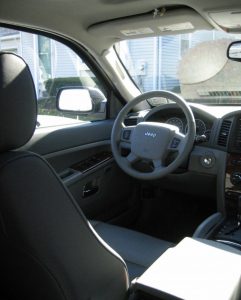 Here is some Texas ALR Administrative License Suspension Injustice:
Here is some Texas ALR Administrative License Suspension Injustice:


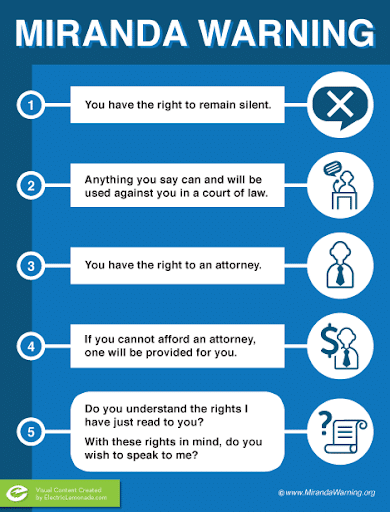 The police did not read my rights at the scene! Can they dismiss the case?!
The police did not read my rights at the scene! Can they dismiss the case?!
 THIS IS AN IMPORTANT WARNING for those who currently have a
THIS IS AN IMPORTANT WARNING for those who currently have a 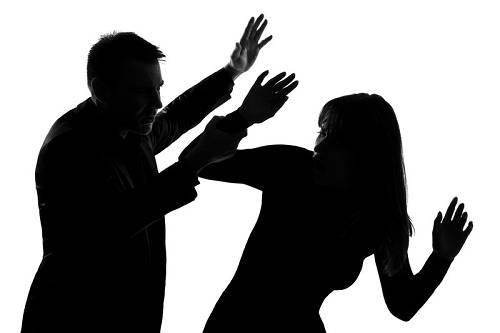
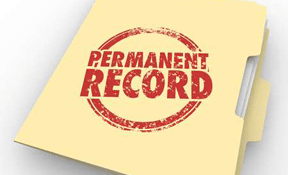
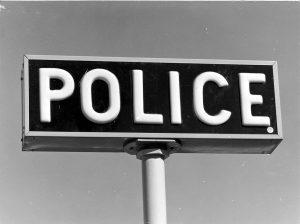 Many people arrested for DWI are not aware they they have the right to request
Many people arrested for DWI are not aware they they have the right to request  Unlawful Carrying Weapon and
Unlawful Carrying Weapon and 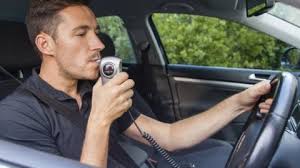 Hate having an interlock? Want to get it off?
Hate having an interlock? Want to get it off?